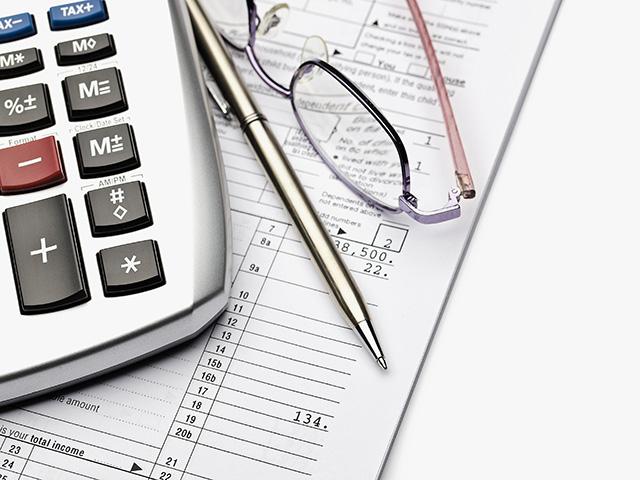A Few IRS Tax Changes in 2024
Tax Penalties, Section 179 and Bonus Depreciation Changes for the New Year
OMAHA (DTN) -- As 2023 ends and farmers begin looking ahead to the new year next week, there are a few tax changes the IRS has lined up for 2024 farmers should keep on their radar.
AVOID UNDERPAYMENT PENALTIES
Farmers should make sure they aren't at risk for underpayment penalties for the 2023 tax year. The IRS in early October increased its underpayment penalty on estimated taxes to 8% interest. The penalty was just 3% in 2021, but it moves with the federal interest rate.
For most tax filers, there is no underpayment penalty if the tax balance due is less than $1,000. There is also no penalty if tax filers paid at least 90% of the taxes shown for 2023, or 100% of the taxes on the 2022 return, whichever is less. The tax payment increases to 110% of last year's taxes for couples with more than $150,000 in adjusted gross income, or individuals above $75,000.
Farmers who have at least two-thirds of their gross annual income in the current year or preceding year would fill out IRS Form 2210-F to determine if they owe a penalty for underpaying their estimated taxes.
Farmers can avoid making estimated tax payments by filing their returns and paying any amount due on or before March 1. Farmers who choose not to file by March 1 should make an estimated payment by Jan. 15 to avoid a penalty. To avoid a penalty, qualifying farmers are required to pay at least two-thirds of their taxes, or 100% of the taxes on their prior year returns, whichever is less.
OWE THE IRS? CHECK YOUR MAILBOX
While the penalties are higher this year, the IRS last week also waived nearly $1 billion in penalties for 4.7 million people and businesses who owed back taxes from 2020 and 2021.
The IRS made the move because it had stopped sending out automatic reminders for overdue tax bills when the pandemic hit in early 2022. The average penalty savings is about $206.
The failure-to-pay penalties will start back up on April 1, 2024.
P[L1] D[0x0] M[300x250] OOP[F] ADUNIT[] T[]
SECTION 179
The ever-popular Section 179 expensing option increases to $1.2 million for 2024 for farmers and other small businesses that buy under $3,050,000 in total equipment. The 179 deduction gets reduced for every dollar spent over that $3.05 million cap.
Section 179 applies to business assets with a depreciation schedule that is less than 20 years.
BONUS DEPRECIATION
The value of bonus depreciation falls from 80% in 2023 down to 60% in 2024. It will then fall to 40% in 2025. Bonus depreciation can apply to purchases that Section 179 does not. Bonus depreciation remains popular for buildings such as machine sheds because they normally have a 20-year depreciation schedule. In 2024, producers can still take 60% of those costs off the top.
ELECTRIC VEHICLE TAX CREDITS
Buying an electric vehicle in 2024 will provide an immediate tax credit of up to $7,500 when consumers buy their EVs, but the rules are tightening over which vehicles qualify. The IRS has a list of vehicles that qualify for $7,500 and others that qualify for up to $3,750. It depends on the vehicle meeting certain requirements for critical minerals and battery components.
Along with those rules, the manufacturer's suggested retail price (MSRP) must be $80,000 or less for SUVs or pickups, or $55,000 for other vehicles.
Also, to get the tax credit, your modified adjusted gross income cannot exceed $300,000 for a married couple filing jointly or $150,000 for a single filer.
ESTATE TAXES
For 2024, the estate tax exemption for people who die increased to $13.61 million, up from $12.92 million for individuals who passed away in 2023. That value also doubles for married couples to exempt up to $27.22 million in assets in 2024.
The taxes can start to jump after reaching those exemptions. An estate with $249,000 in taxable assets pays 32%; an estate with $751,000 in taxable assets pays 39%; and every estate with more than $1 million in taxable assets pays 40%.
The estate tax will also start drawing more attention because, without a change in law, the asset exemption will roll back to under $7 million starting in 2026.
The annual exclusion for gifts bumps up to $18,000 in 2024 as well.
PAYMENT APPS
This probably doesn't apply to a lot of farmers unless they or their spouses have a steady side hustle that uses Venmo, PayPal or some other type of payment app or online company such as eBay.
In November, the IRS again delayed a requirement that these third-party payment businesses send IRS Form 1099-K to everyone who made more than $600. Instead, the IRS set the threshold for the 2024 tax year at $5,000 to phase in the reporting requirements. The IRS stated it would also look to tweak its standard 1040 income tax form in 2024 to make it easier for taxpayers to record that income.
Already, the IRS expects roughly 44 million Form 1099-Ks will be sent to taxpayers for the 2023 tax year. Still, the IRS stated in November that reporting will not be required unless the taxpayer receives more than $20,000 and has more than 200 transactions in 2023. The IRS noted there were going to be issues figuring out the complexity of separating taxable and non-taxable transactions.
Changes in IRS Tax Rates for 2024: https://www.irs.gov/…
Chris Clayton can be reached at Chris.Clayton@dtn.com
Follow him on X, formerly known as Twitter, @ChrisClaytonDTN
(c) Copyright 2023 DTN, LLC. All rights reserved.




